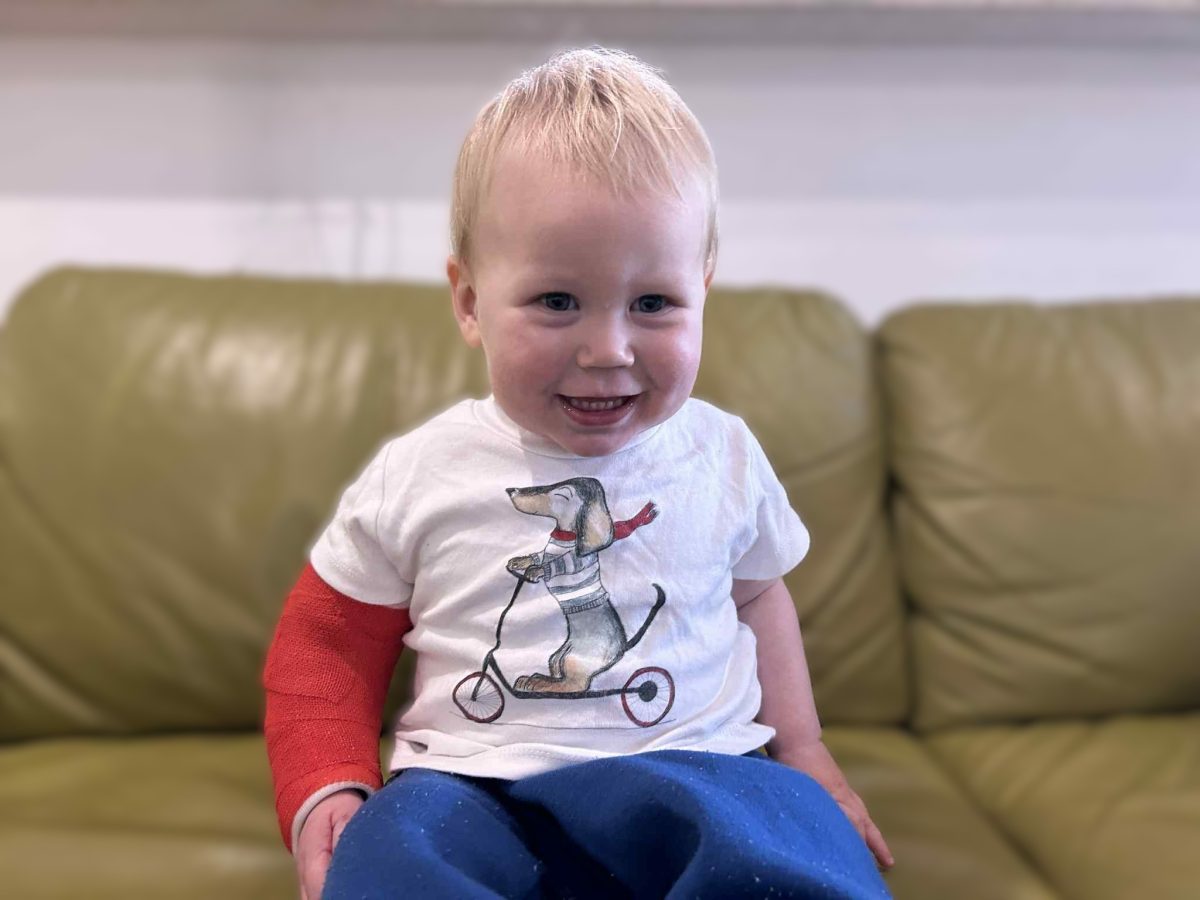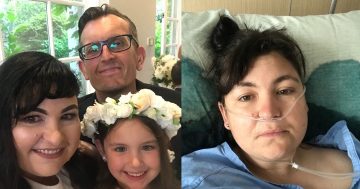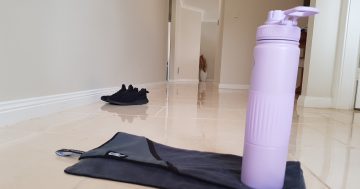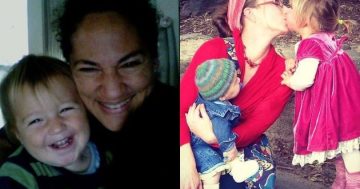
Smiling through the pain – my one-year-old will be sporting a cast for the next month. Photo: Keeli Dyson.
My toddler acted so tough when he broke his arm that I almost didn’t realise how bad it actually was.
A simple misjudgement getting off our bed after some morning cuddles meant he toppled to the floor and fractured his humerus (wasn’t very funny) but his reaction left me waiting hours before getting it checked out.
He cried a bit but bounced back, with our only indication that something was wrong the fact he would sometimes wince when a specific part of his right arm was touched and seemed to be switching hands to favour his left.
He also wouldn’t high-five – so that was a big red flag.
Four hours after the incident I found myself in urgent care with a very happy toddler, expecting doctors to tell me I was overreacting, but instead several x-rays revealed a significant injury that was causing him quite a bit of pain.
Wow, mother of the year.
In the rare moments I wasn’t beating myself up about missing it, I found myself wishing that he could’ve told me what was wrong or thinking that if he’d have at least cried a bit more I would’ve picked up on it faster.
But he didn’t.
He was too brave.
While I can’t ask him ‘why’ or be inside his head to understand the logic of his resilience, I do know that this trait isn’t something that stops in childhood.
I myself have also fallen victim to pushing through pain to the detriment of my health, whether it was going into work sick with a cold that then lasted three times as long as it should’ve; or not seeking treatment for hip pain which actually turned out to be a slipped disc in my spine which I dealt with for three years before it started impacting my nerves and required surgery.
According to the Australian Bureau of Statistics, almost 30 per cent of people over 15 delayed or did not use a GP service when needed in 2023-24.
While cost was identified as a barrier, more than 1 in 5 reported the reason as being factors such as services not being available, waiting times being too long or being too busy.
Females were more likely to do this.
It’s something my colleague Dione David experienced first-hand when she was recently diagnosed with Stage 4 endometriosis.
The doctor explained that her case was ‘textbook’ and all too common – simply put, if she had have gone in sooner it may not have been so severe.
But with the average endometriosis diagnosis taking six to seven years, and countless stories of misdiagnosis, misinformation and even misconceptions of what is ‘normal’, many people find that it’s not only the busy nature of everyday life that can delay intervention but also the ongoing effort and emotional impact of trying to convince medical practitioners of the health issue.
When it comes to mental health or substance use disorders, research shows Australians are waiting an average of 12 years before seeking treatment.
Something needs to change.
Physical and mental health so often get put on the backburner despite it being common knowledge that delays usually lead to more severe problems or longer treatments.
But it’s still so deeply ingrained in our society that pushing through pain and struggling in silence is a necessity.
However, when it comes to our loved ones, whether it’s our kids, family or friends, we often approach it the opposite way, not taking any risks and putting in extra effort to find ways to ease pain faster and more effectively or wishing they would have showed us just how much pain they were in so we could help.
So it’s time to redefine brave.
It shouldn’t be brave to delay healthcare; it should be an indication of a failure in the system, whether that’s a workplace that doesn’t have appropriate processes in place to support injured or sick employees, a medical practice that is inaccessible or difficult to navigate or even a friend or family member who shames or portrays help-seeking as a weakness.
Importantly, we also need to find the strength as individuals, and be brave enough to speak up and say we need help.
As I try to make a lesson from a mishap, I’ll strive to lead by example .
I’ll step up when I’m sick and teach my son it’s OK to cry if he’s in pain (encouraged even), speak up if he’s hurt (when he learns that skill), and for goodness sake, go backwards off the bed.
If you or someone you know needs help, you can contact Lifeline’s 24-hour crisis support line on 13 11 14


















